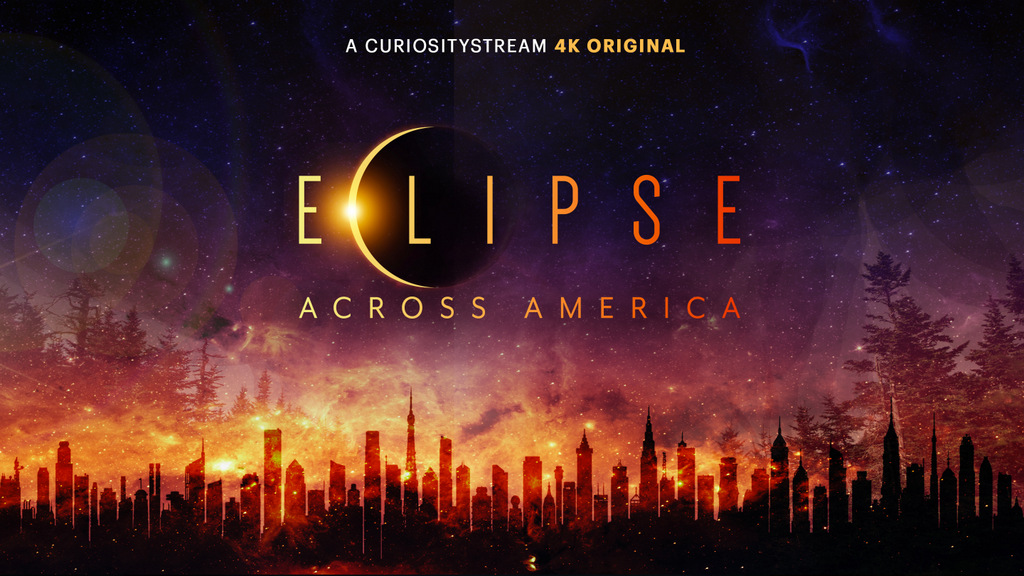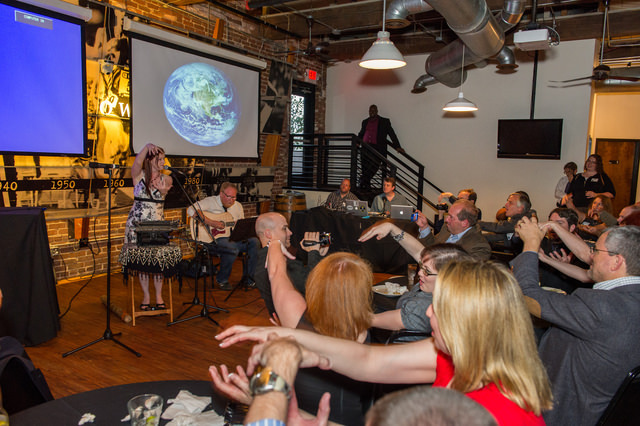This week we are joined by Dr. Sarah McAnulty. Sarah is a squid biologist and the executive director of the science communication non-profit Skype a Scientist which matches scientists with people all around the world.
Continue reading “Weekly Space Hangout: May 20, 2020 — Dr. Sarah McAnulty from Skype A Scientist”Weekly Space Hangout: April 22, 2020 – Dr. Fred Watson talks Exploding Stars and Invisible Planets
Hosts: Fraser Cain (universetoday.com / @fcain)
Dr. Pamela Gay (Cosmoquest.org / @StarStryder )
Moiya McTier (https://www.moiyamctier.com/ / @GoAstroMo)
Allen Versfeld (https://www.urban-astronomer.com/ / @uastronomer)
This week we are pleased to welcome Dr. Fred Watson to the WSH. Fred is Australia’s first Astronomer-at-Large, an outreach and advocacy role within the Commonwealth Department of Industry, Science, Energy and Resources. He is graduate of the universities of St Andrews and Edinburgh, and worked at both of Britain’s Royal Observatories before joining the Australian Astronomical Observatory as Astronomer-in-Charge in 1995.
Weekly Space Hangout: February 26, 2020 – Czarina Salido of Time In Cosmology is ‘Taking Up Space’
Hosts: Fraser Cain (universetoday.com / @fcain)
Allen Versfeld (https://www.urban-astronomer.com/ / @uastronomer)
Beth Johnson (@planetarypan)
Moiya McTier (https://www.moiyamctier.com/ / @GoAstroMo)
This week we welcome Czarina Salido to the Weekly Space Hangout. Czarina is the Executive Director of Time In Cosmology and the founder of the 501(3)(c) non-profit Taking Up Space.
Continue reading “Weekly Space Hangout: February 26, 2020 – Czarina Salido of Time In Cosmology is ‘Taking Up Space’”Weekly Space Hangout: December 18, 2019 – Anita Gale, Co-founder of the Space Settlement Design Competitions
Hosts: Fraser Cain (universetoday.com / @fcain)
Dr. Pamela Gay (Cosmoquest.org / @StarStryder )
Pam Hoffman (EverydaySpacer.com / @EverydaySpacer)
Michael Rodruck (@michaelrodruck)
Continue reading “Weekly Space Hangout: December 18, 2019 – Anita Gale, Co-founder of the Space Settlement Design Competitions”Weekly Space Hangout: Dec 05, 2018: Dr. Pamela Gay talks CosmoQuest Hangoutathon!
Hosts:
Guest Host Dr. Pamela Gay (astronomycast.com / cosmoquest.org / @starstryder)
Fraser Cain (universetoday.com / @fcain)
Dr. Paul M. Sutter (pmsutter.com / @PaulMattSutter)
Dr. Kimberly Cartier (KimberlyCartier.org / @AstroKimCartier )
Dr. Morgan Rehnberg (MorganRehnberg.com / @MorganRehnberg & ChartYourWorld.org)
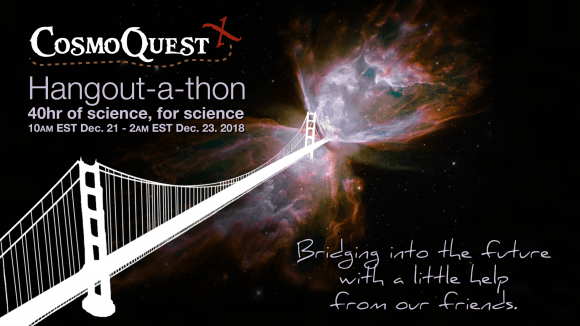
Dr. Pamela Gay will be back to promote the CosmoQuest Hangoutathon coming up on Dec 22-24, live on https://www.twitch.tv/cosmoquestx.
Continue reading “Weekly Space Hangout: Dec 05, 2018: Dr. Pamela Gay talks CosmoQuest Hangoutathon!”
Hey Citizen Scientists! Help NASA Analyze Images Taken from the Space Station
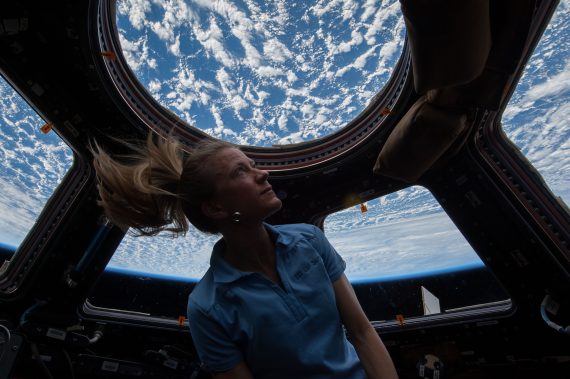
Calling all citizen scientists, geography buffs, fans of the International Space Station and those who love that orbital perspective!
CosmoQuest has a brand new project in coordination with NASA and the Astronomical Society of the Pacific (ASP) where you can help identify features in photographs taken by astronauts from the space station.
The project is called Image Detective. I’ve tried it out, and wow, THIS is a lot of fun!
Now, I absolutely love seeing the images taken of Earth from the ISS, and I routinely follow all the astronauts on board on social media so I can see their latest images. And I also love the concept of regular, everyday people doing science. Plus I’m a big fan of CosmoQuest and their ‘quest’ to bring science to the public.
But still, the setup CosmoQuest has is really great and the process is easy. Citizen scientists are asked to help identify geographic features (natural or human-made) and then determine the location on Earth where the photo is centered.
I found that last part to be the most difficult, but I’ve been known to have trouble reading a map … so I’m hoping that I can improve a bit with more practice.
Public Invited to Test New Tool to Study Earth using Photos Taken by International Space Station Astronauts https://t.co/zKuSbwTvZx pic.twitter.com/JslJU6DIxo
— Cosmo Quest (@cosmoquestX) September 28, 2017
“The astronauts’ photos of Earth are visually stunning, but more than that, they can be used to study our changing Earth,” said our good friend Dr. Pamela Gay, who is the Director of Technology and Citizen Science at ASP. “From erupting volcanoes, to seasonal flooding, these images document the gradual changes that happen to our landscape. The trick is, we need to make these images searchable, and that means taking the time to sort through, analyze, and label (add metadata) the unidentified images within the database of 1.5 million plus photos.”
You can try it out here: http://cosmoquest.org/ImageDetective.
The team says that Image Detective spreads the significant work necessary to label all of the images out to citizen scientists across the world.
“This is a unique, powerful, and beautiful image data set that has already yielded excellent research science. But the data set needs the many eyes and minds of citizen scientists to reach its full potential as a publicly available, searchable catalog,” said Dr. Jennifer Grier, a Senior Scientist and Senior Education and Communication Specialist at Planetary Science Institute (PSI) and CosmoQuest’s lead support scientist. “With the additions that citizen scientists as detectives can make, professional research scientists will be able to conduct more research into our changing world, and do so much more effectively.”
“Eclipse Across America:” Could This Event Bring Us All Together?
If you are looking forward to the August 21 solar eclipse as much as we are, you’ll want to check out a new series on CuriosityStream called “Eclipse Across America.”
The four-part series takes an inside preview at this highly anticipated event. NASA experts, an international group of astronomers and seasoned eclipse chasers reveal secret viewing spots and tips on how to safely view what could be for millions of people a once-in-a-lifetime opportunity to see one of the most spectacular sights in nature: a total solar eclipse.
Our friend and Astronomy Cast co-host Dr. Pamela Gay, who is also the Director of Technology at the Astronomical Society of the Pacific, is part of the all-star “astronomy cast” (pun intended) of experts, and she talked with us about her part in the show.
“I get to talk about the really cool parts of an eclipse, where you can experience totality and actually feel the temperature change,” she said. Using state-of-the-art special effects, Pamela gets to show off what the eclipse will likely look like at spots around her location in the St. Louis, MO area. “There’s the fickleness of it, where some buildings will see totality and another won’t,” she said. “Of course, the closer you get to the centerline the longer totality will be, and there are some beautiful locations where you can see it.”
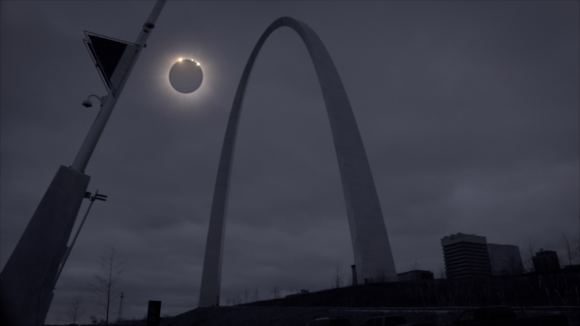
The really fun part of this particular eclipse is that it takes a path across the entire continental U.S. I asked Pamela if, given the rather divisive political and social climate these days in this country, could this total solar eclipse become a possible unifying moment?
“I think that during the event there will be a lot of overwhelming experiences that people sometimes have of being in a crowd – such as will there be enough bathrooms,” she said. “But afterwards, I think it will be this shared ‘do you remember when’ moment that we’ll have for the rest of our lives. We all have certain moments that we remember and currently here in the US a lot of those memories are ‘where were you when 911 happened? Or where were you when we started bombing Iraq.’ This will be ‘where you when the sun was eclipsed,’ and that is so much better than ‘where were you when the towers fell down.’”
If you already have a CuriosityStream account, you can watch the series starting with Episode One here. If you don’t, you can take advantage of a 7-day free trial in order to watch this series, and all the other great science offerings available, such as Stephen Hawking’s Universe, Brian Cox’s Wonders of Life, and other topics from astronomy observing tips to info about various missions to theoretical physics. Check it out. If you’re interested in continuing after your free trial, the ad-free streaming service costs $2.99, $5.99 and $11.99 per month for standard definition, high definition, and ultra high definition 4K respectively.
Annual Atlanta Star Party Coming Soon!
If you happen to be attending DragonCon or just live near Atlanta, come and listen to some fantastic speakers and help do astronomy research and education at the Annual Atlanta Star Party!
What: Since 2009, this annual charity event celebrates science and space, and brings people together for a great cause.
When: August 28, 2014, 7:00 p.m.
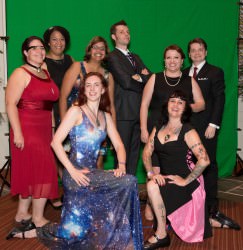
Who: Astronomers Pamela Gay, Nicole Gugliucci and Derek Demeter will be speaking at the event.
Where: The Emory University Math and Physics Department hosts the celebration at The Emory Math & Science Center, 400 Dowman Drive, Atlanta, GA 30322.
Why: Proceeds from the Star Party go to the Alzheimer’s Foundation of America and CosmoQuest. And, as always, we throw this party in memory of Jeff Medkeff, the “Blue-Collar Scientist.”
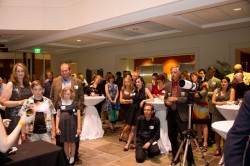
Tickets can be bought at http://atlantastarparty.com/tickets/ and you can share the promo code STARRY2014 for $5 off.
There is also a silent auction already started at: http://atlantastarparty.com/silent-auction/
Astronomy Cast Live from Dragon*Con 2010

In this special live Dragon*Con 2010 episode of Astronomy Cast we welcomed special guest Les Johnson, Deputy Manager for NASA’s Advanced Concepts Office to talk about the state of human space exploration. And then we opened up the show to some amazing questions from the audience. Listen to the first live show ever done with both Fraser and Pamela in the same room.
Click here to download the episode.
Or subscribe to: astronomycast.com/podcast.xml with your podcatching software.
Astronomy Cast Live from Dragon*Con shownotes and transcript.

